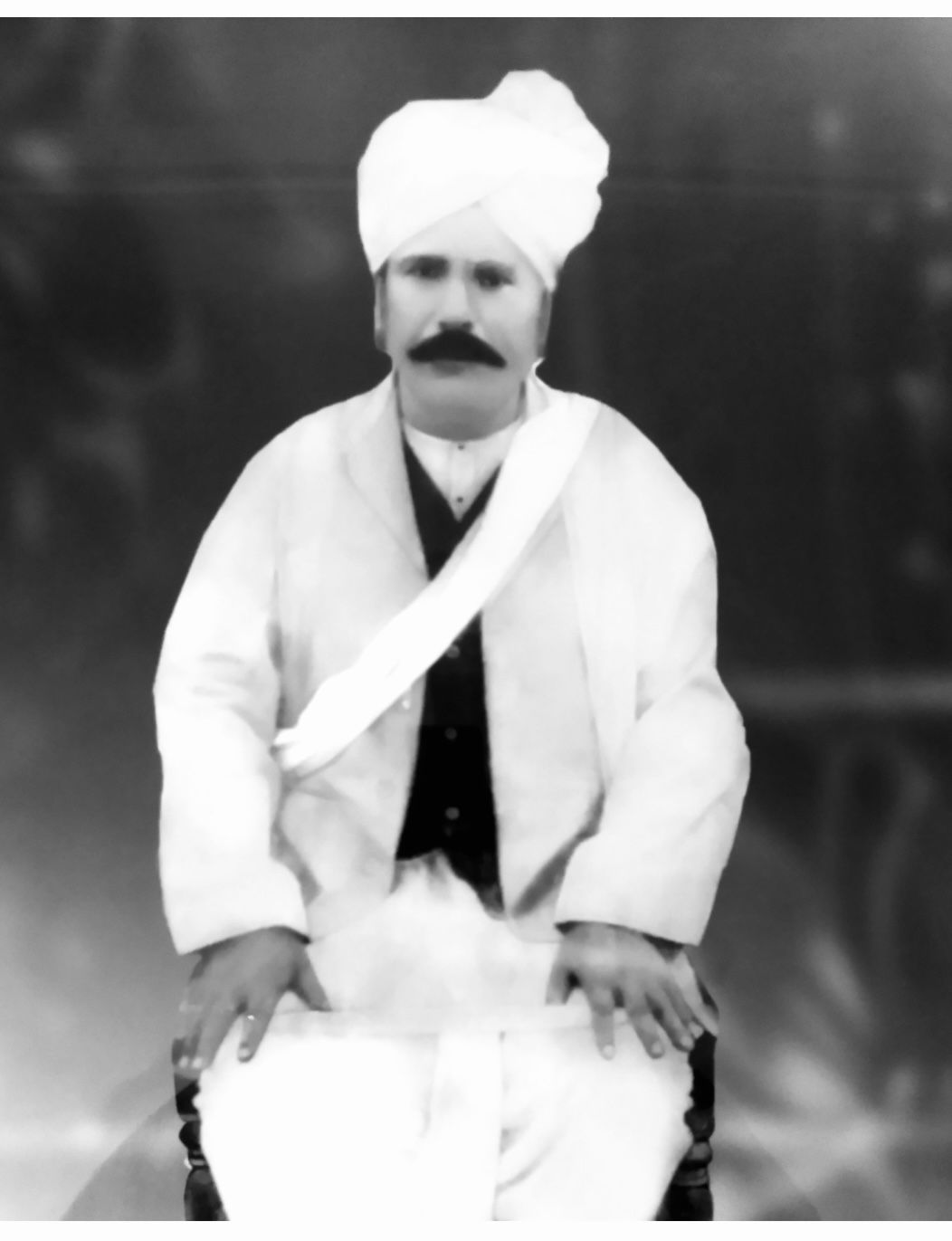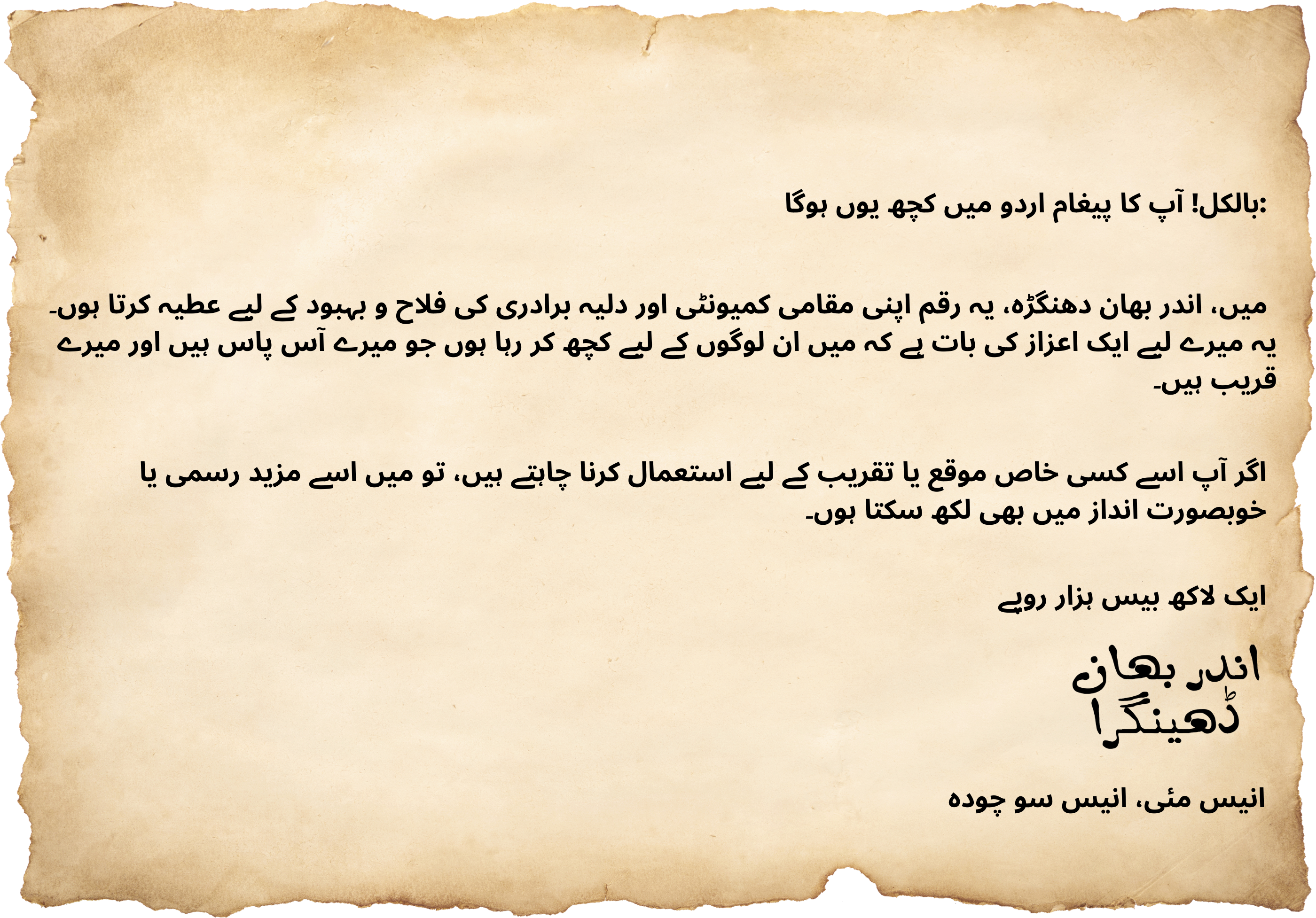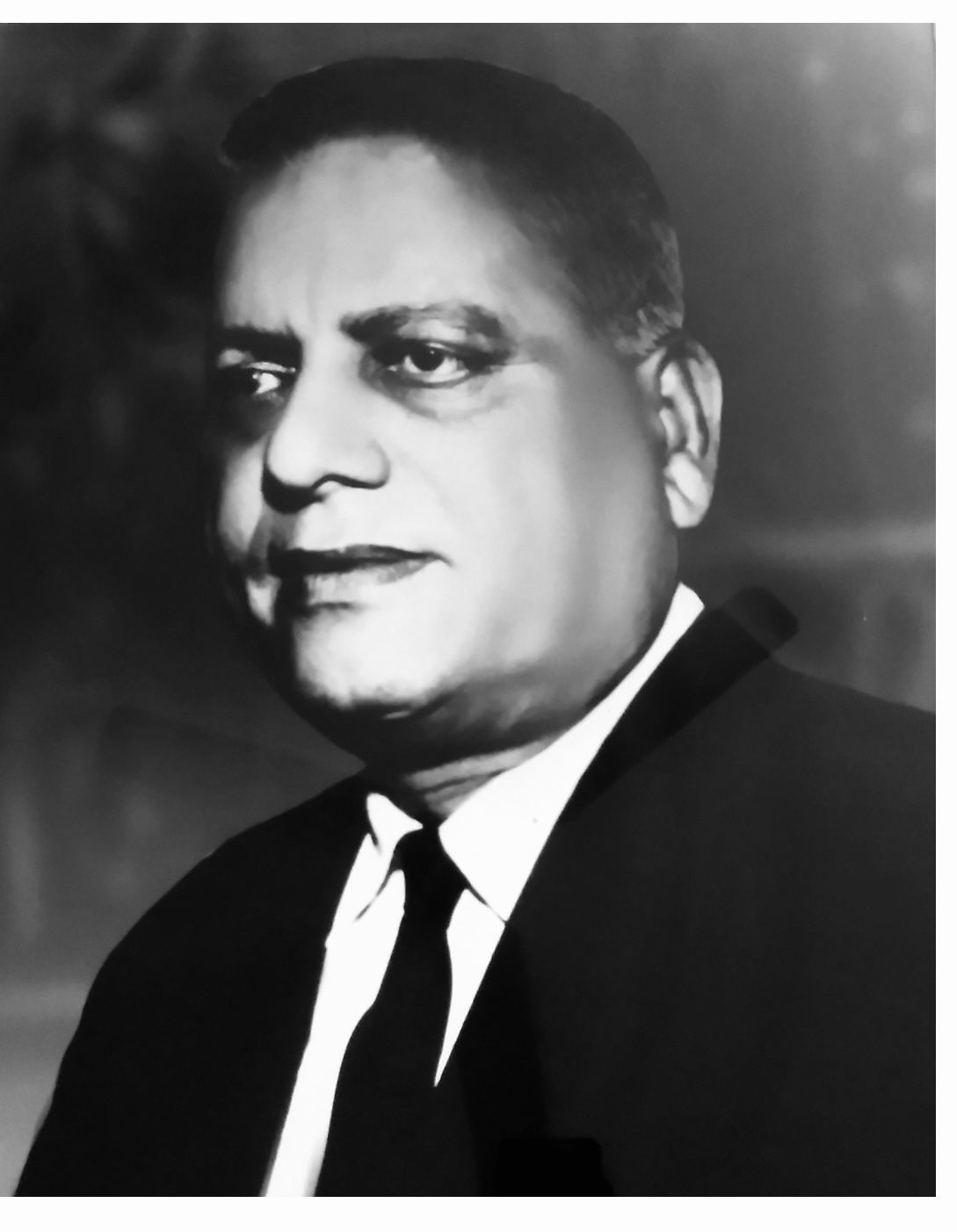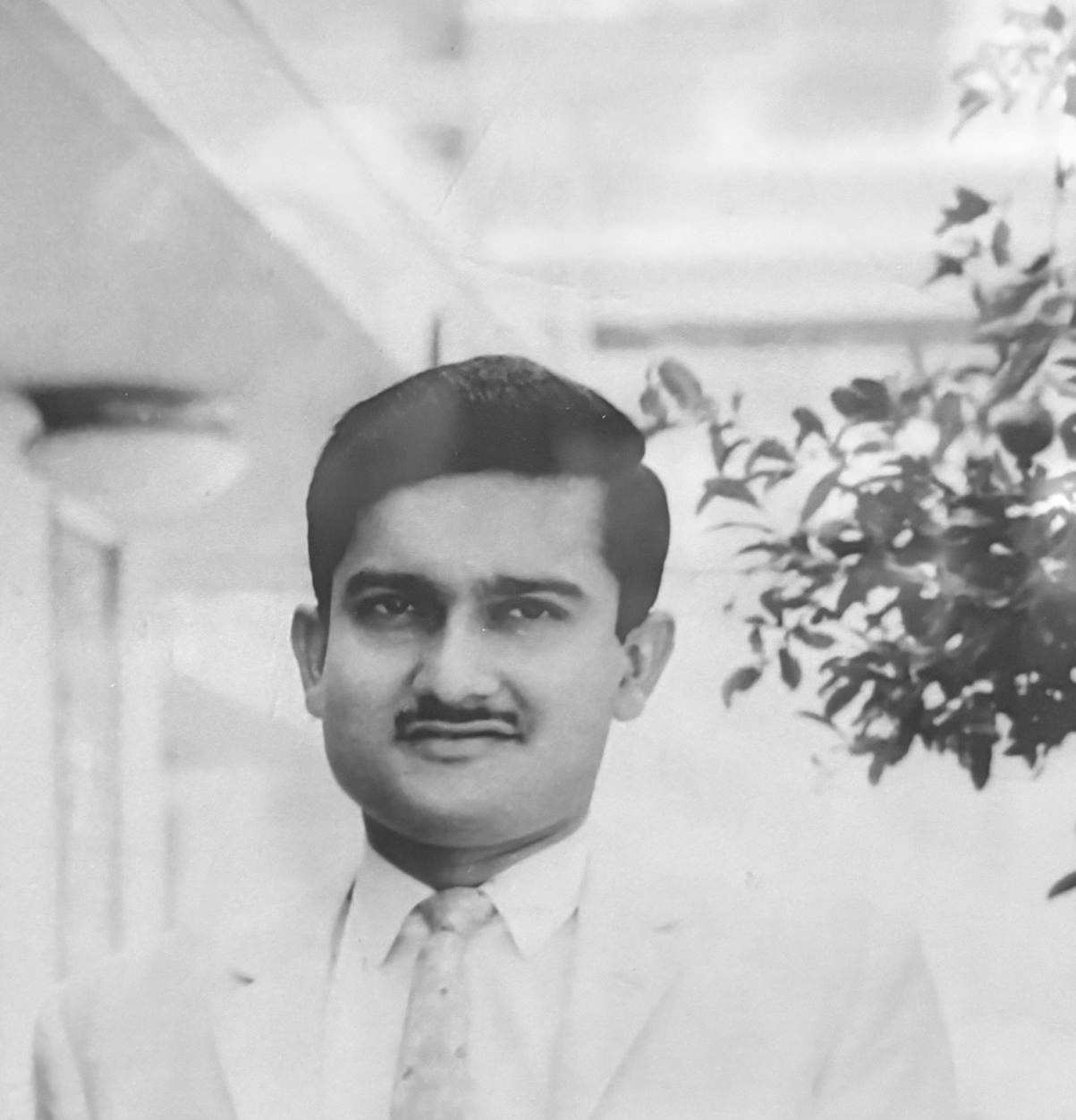
Our Legacy
Shri Inder Bhan Dhingra
"DAANVEER SETH"
Our story originates in pre partition Greater India, in the Layyah district of now modern day Pakistan. Shri Inder Bhan Dhingra was born in 1878 into a distinguished family of land-owning traders ; from an early age he displayed a keen sense of business and responsibility, entering the world of agri-commodity trading and money lending shortly after completing his primary education, gaining a revered reputation of business instincts and discipline in his local community.
Over time, he expanded beyond his initial ventures to set up ice factories, lead wheat distribution networks, and pioneer cold storage infrastructure in the region—transformative initiatives for agricultural preservation and trade. His success was driven by a combination of foresight, hard work, and a deep understanding of local needs.
With his growing wealth, his devotion to his community grew as well. In 1914, he donated ₹1.2 lakh—a massive sum at the time—to support public welfare, equivalent to over ₹30 crore today. His life set the foundation for future generations, blending ambition with selfless service. His name is to this day celebrated in his hometown and earned him the title of “DaanVeer” by his biradari.


I, Inder Bhan Dhingra
Hereby donate this money for the welfare of my community and for my Layyah Baradari.
I am humbled and honoured to do this for those near and dear to me.
1.2 lakh rupaiyah
- Inder Bhan Dhingra
19 May 1914
Shri Brij Lal Dhingra
Born in 1911, Shri Brij Lal Dhingra was admired for his strength, dependability, and relentless spirit. He worked alongside his father from a young age, playing a vital role in establishing the region’s first cold storage facility. His family fondly referred to him as their “Sohna Munda” or “Golden Son” for his unwavering ambition.
Still recovering from the trauma of the Partition in 1947 when the family was forced to flee, to abandon their home and start afresh, Brij Lal rebuilt their future from scratch. He began with leather trading and traveling across India—from Agra to Kerala and Assam—to build networks and expand the business. His dedication led to the founding of The India Trading Corporation, a leading trading house in the 1960-80s.
Known to enjoy the finer things in life, especially Hindi Cinema and his love of Bollywood, he later purchased Vivek Cinema in Delhi’s Patel Nagar, one of the city’s largest and iconic theatres. Infact, ShahRukh Khan once said that the first movie he watched in a movie Hall that inspired him to be the King he is, was at iconic Vivek (https://www.youtube.com/watch?v=W5dv3D1ckoo)!
His proudest contribution, however, was founding I.B. College in Panipat (http://ibpgcollegepanipat.ac.in/) in 1956, in memory of his father. Before “Philanthropy” was known as such and CSR was endorsed by governments, Brij Lal ji, staying true to the values instilled in him by his family, created this mammoth of an institution with his personal funds, creating a charitable trust headed by the Dhingra Family, for the education and skill development of the girl child . The College stands stronger and bigger today as a Co educational institute affiliated to the Kurukshetra University.


Shri Hans Raj Dhingra
Shri Hans Raj Dhingra began accompanying his father on business trips as a teenager, quickly learning the ropes of trade and logistics. By the early 1980s, he took charge of the family’s rubber business and successfully expanded it across North India, South India and West Bengal, serving diverse industries such as tyres, footwear, gloves, and industrial mats.
In the following decade, he launched an export business focused on finished leather goods, which flourished through the 1990s. His sharp business acumen and relentless drive helped him build a vast network of partners across India and beyond. Simultaneously, he ensured Vivek Cinema remained a cultural landmark with the finest film releases and parties in the capital, until its final curtain call.
True to the legacy of service, Hans Raj continued supporting I.B. College both financially and emotionally and forged collaboration with the University of Kurukshetra and commissioned statues and memorials of his father and grandfather on campus to honor the legacy of giving back that was started by them—ensuring their contributions would remain etched in the hearts and minds of future generations. His life symbolized the balance between growth and gratitude.